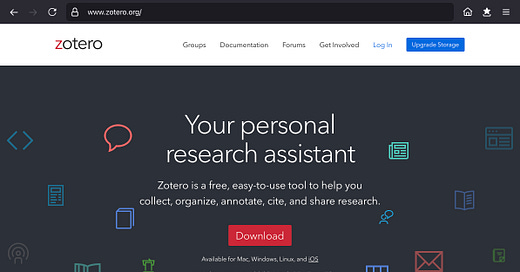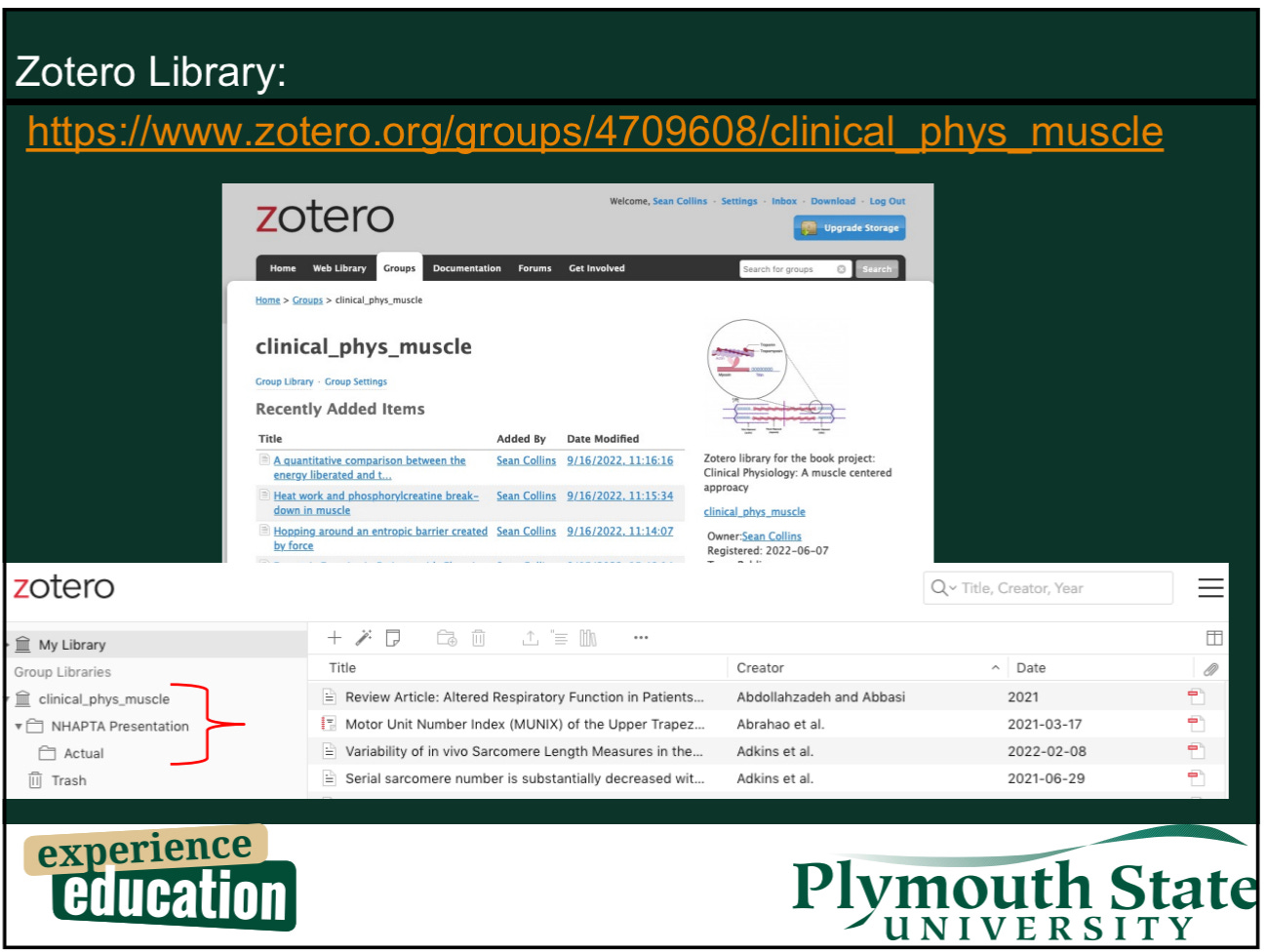In a recent podcast with Dr. Greg Lozier (Reflections from a New DPT Graduate), Greg mentioned that now that he’s out in practice, evidence based practice is more difficult. There are a few ways to take this statement, and I’ll address the more difficult to address aspect in a future post. But what he was referring to was access to resources that being at a university provides. We discussed how evidence for well informed informed practice decisions doesn’t change quickly and that “keeping up” need not involve deep reading of, or access to, all possible papers on a particular topic. The important point being that after the effort to build a foundation of practice decisions informed by evidence, it should be easier to maintain that foundation. We also discussed how Greg has chosen to work in a clinic that takes pride in having a strong foundation of evidence informed practice decisions. Recommendations from his mentor are evidence informed when it’s possible (i.e. when there is evidence to inform practice decisions). The point here is that the community you interact with as a clinician influences the extent to which you (as an individual clinician) has a foundation of evidence informed practice. Ideally you’re surrounded with people that will challenge you from a position of always challenging themselves. By challenging themselves to get informed and “keep up” with what is happening they can better challenge you, and you can challenge them.
Challenging one another involves asking the simple question, “why do you believe X to be true?” Is a critical part of making sure the community you’re in - the colleagues that you interact with - help one another grow. This is what I mean by a scholarly community. This doesn’t just apply to practice, this applies to all things. It’s a foundational part of many of my relationships. I tend to cultivate relationships with people that encourage and equip me to grow by asking me why I believe X to be true, challenging and encouraging me to develop better answers to that question, and sharing with me both their thoughts as well as their beliefs, for me to challenge.
But please know, not all people you interact with are going to want such a challenge, or are equally helpful in challenging you. Cultivate those with potential, and prune when needed, and continuously assess where you’re headed and how you’re going about it. And a really important point is to seek people that are willing to oppose you, to truly challenge you. Confirmation bias is not just an individual phenomenon, group think is simply confirmation bias in groups.
Access to Papers and Scholarly Publishing
There are times that access to journal articles is an issue. Pay walls are still a thing in scientific and practice journals, and many physical therapy journals are publishing papers that don’t have the funding to publish “open access.” (Open access papers are those that the author of the paper pays the publication charge so that the author maintains the copyright and the paper is therefore available. There are open access journals, all of the PLOS and BMC and MDPI journals are open access. Then there are journals that allow open access (usually have higher “article processing charges” - meaning the authors must pay more to retain copyright. There are also journals that maintain copyright but only keep articles behind a paywall for a period of time (perhaps a year), and after that period of time make the articles available for free. This is also open access, but they don’t release the copyright to the authors, so it’s a bit different. Though not different to the reader that simply wants a copy of the paper. The Physical Therapy and Rehabilitation Journal (Oxford University Press) makes all papers freely accessible after one year; as does Journal of Orthopedic and Sports Physical Therapy (self published I believe, it’s a large Academy). Other smaller APTA Academies use larger publishing houses to give them the services necessary despite their small number of subscribers (Cardiopulmonary Physical Therapy Journal, LWW/Wolter’s Kluwer), and are only ever accessible if there’s a subscriber OR the author pays for open access.
One very nice thing is that PTJ and JOSPT do make Clinical Practice Guidelines (CPGs) freely available. And CPGs are one stop shopping resources for clinicians looking to build their foundation of evidence informed practice decisions and for keeping current.
Two Tools
There are two tools available for clinicians to mention. First is Google Scholar.
The benefit of Google Scholar is that it provides a very broad search engine with the ability to narrow down your search with Boolean operators (AND, OR) and search fields (title, abstract, full text, author, etc); and if the paper is accessible as open source, or in a prepublication repository (such as Pubmed Central), or on an authors website (in other words beyond a journal’s paywall - it is shown. You simply click “all versions” - so see all the places that paper is available. For example, there are papers that Elsevier publishes and their website will gladly take your money for the paper. But, the paper is also available for free through Pubmed central as a condition of funding for the authors research. If you go directly to the journal, you may think it’s not available. But with Google Scholar you’d see that it’s available on PubMed Central.
For example, - this paper on the Journal of Biomechanics website is hidden behind an Elsevier (Science Direct) paywall…..
https://www.sciencedirect.com/science/article/abs/pii/S0021929012006768
But if you search it on Google Scholar - you’ll find it’s also on Pubmed central for free - the authors have Federal funding, so as a tax payer, you’ve already paid for it.
https://www.ncbi.nlm.nih.gov/pmc/articles/PMC3979434/
In other words, don’t stop when a journal asks for money. Search the paper on Google Scholar and investigate “all options”. And, if you search one Google Scholar, look at “all versions” to see where else it may reside - possibly for free.
Zotero
The second tool is Zotero.
As it says on its website - it’s a free, easy-to-use tool to help yo collect, organize, annotate, cite and share research.
Research can be shared by creating groups. Private groups can share amongst group members PDFs of research papers acquired from wherever a group member can get it. Once added to the group, all of the group (a scholarly community) has access.
It would seem useful to the profession, and particularly clinicians without university library access, to form such groups and to partner with (include as members of the group) individuals with library access and even professional association based subscriptions. For example, as a member of the American Physiological Society and American Statistical Association, I have access to all of the journals that these organizations publish (they are two big bang for the
buck associations). Unlike the APTA which only gives access to PTJ (and none of the Academy journals), the APS gives its members to ALL of the APS journals. I might add that it does so with a lower annual member rate and more journals overall. But that’s a different story. I think APS has less political lobbying funding need than APTA, which has a greater need for lobbying and, many other member resources that APS does not have (just making the comparison here, I’m happy with both of these memberships ;)
I personally maintain several “groups” - when I give talks on a topic I will often tell people in the audience that I maintain a Zotero group on the topic and all of the citations I’m using are therefore available if they choose to request membership (which I’d gladly provide to anyone that I’ve had communication with about why they want access. As a group owner, I can adjust the permissions available. For example, I can have members see but not change the group library, and administrators have the right to change the group library.
Here’s a slide from a presentation I did last year on skeletal muscle physiology:
And here’s a link to that particular group library:
https://www.zotero.org/groups/4709608/clinical_phys_muscle
And here are other links to some of my groups by topic - should anyone have any interest in being a member:
Cardiopulmonary Physical Therapy
The point being - a Scholarly Community can use these tools (Google Scholar and Zotero) to help challenge one another, and work together to make sure access is available to its community members.
A community could have one Zotero library with multiple and evolving topics organized by folders and tags. Or be organized by topic (as I’ve done above). Right now my “movement system” group has a folder for CPGs that are from the Academy of Orthopedic Physical Therapy (these are freely available), but the versions in this Zotero library would become their own folders with more detailed papers from the CPG for anyone wishing to take a deeper dive into the evidence details of a recommendation, or even to keep a repository of more current evidence that should be considered.
I’m at my self-imposed word limit. In my next post I’m going to point out an example of why vigilance is warranted when taking second hand information for practice decisions, particularly when the second hand source is not itself a well curated peer reviewed source of information.





